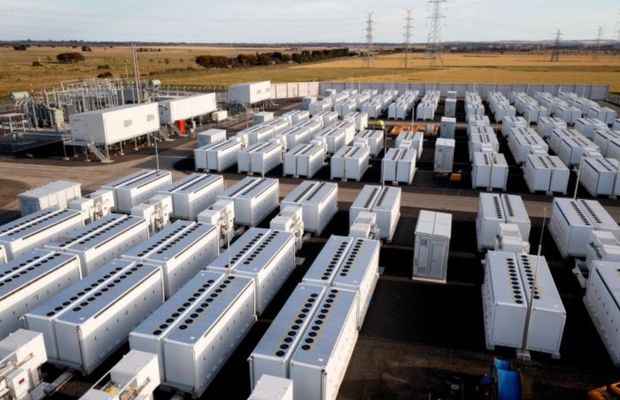The global landscape for battery energy storage systems (BESS) is evolving rapidly, driven by technological advancements, policy shifts, and the urgent need for grid modernization and renewable energy integration. This dynamic environment presents several trends and predictions that are shaping the future of energy storage worldwide. Here’s an analysis of the current global trends in battery energy storage systems (BESS) and what we might expect moving forward:

1. Exponential Growth in Capacity
The global capacity of battery energy storage systems (BESS) is expected to see exponential growth. This surge is fueled by the increasing demand for renewable energy integration, the need for grid stability, and the electrification of transportation. As countries and companies set ambitious targets for reducing carbon emissions, the role of energy storage as a facilitator of these goals becomes ever more critical. Forecasts suggest that the deployment of battery energy storage systems (BESS) will multiply several-fold over the next decade, reaching unprecedented levels of installed capacity worldwide.
2. Technological Innovations
Advancements in battery technology are set to continue, with lithium-ion batteries leading the charge due to their declining costs, high energy density, and efficiency. However, the landscape is also witnessing the emergence of alternative technologies such as solid-state batteries, which offer improved safety and potentially higher energy densities, and flow batteries, which are particularly suited for long-duration storage. These technological innovations are expected to improve the performance and reduce the costs of battery energy storage systems (BESS), making them more accessible and effective.
3. Cost Reductions
The cost of battery storage is predicted to continue its downward trajectory, driven by economies of scale, improvements in manufacturing processes, and advances in materials science. This cost reduction is crucial for enhancing the economic viability of battery energy storage systems (BESS) and expanding their application across different sectors, including residential, commercial, and utility-scale energy storage.
4. Policy and Regulatory Support
Governments around the world are increasingly recognizing the importance of energy storage in achieving their energy and climate goals. As a result, policy and regulatory support for battery energy storage systems (BESS) are expected to strengthen, with incentives, subsidies, and regulatory frameworks that encourage the development and integration of energy storage solutions. This supportive policy environment will be pivotal in accelerating the deployment of battery energy storage systems (BESS).
5. Diversification of Applications
Battery energy storage systems (BESS) applications are diversifying beyond traditional uses such as grid support and renewable energy integration. Emerging applications include supporting electric vehicle charging infrastructure, providing backup power for data centers and critical infrastructure, and enabling off-grid solutions for remote and underserved communities. As battery energy storage systems (BESS) technologies mature, their versatility and adaptability will open up new markets and opportunities.
6. Increased Focus on Sustainability
The environmental impact of battery production and end-of-life management is coming under greater scrutiny. This is driving trends towards more sustainable practices, including the development of batteries using less harmful materials, advancements in recycling technologies, and the circular economy for battery components. Sustainability considerations are becoming integral to the battery energy storage systems (BESS) value proposition, influencing both consumer choice and regulatory policies.
7. Integration with Smart Grids and IoT
The integration of battery energy storage systems (BESS) with smart grid technologies and the Internet of Things (IoT) is set to enhance the efficiency and functionality of energy storage. Smart management systems powered by artificial intelligence and machine learning can optimize battery performance, extend lifespan, and seamlessly integrate storage assets into the broader energy system, including virtual power plants and demand response programs.
Conclusion
The future of Battery Energy Storage Systems is marked by rapid growth, technological innovation, and an expanding range of applications. As the world transitions towards more sustainable and resilient energy systems, battery energy storage systems (BESS) will play an increasingly central role. The ongoing trends suggest a vibrant and dynamic future for energy storage, with significant implications for global energy markets, policy landscapes, and technological development.
